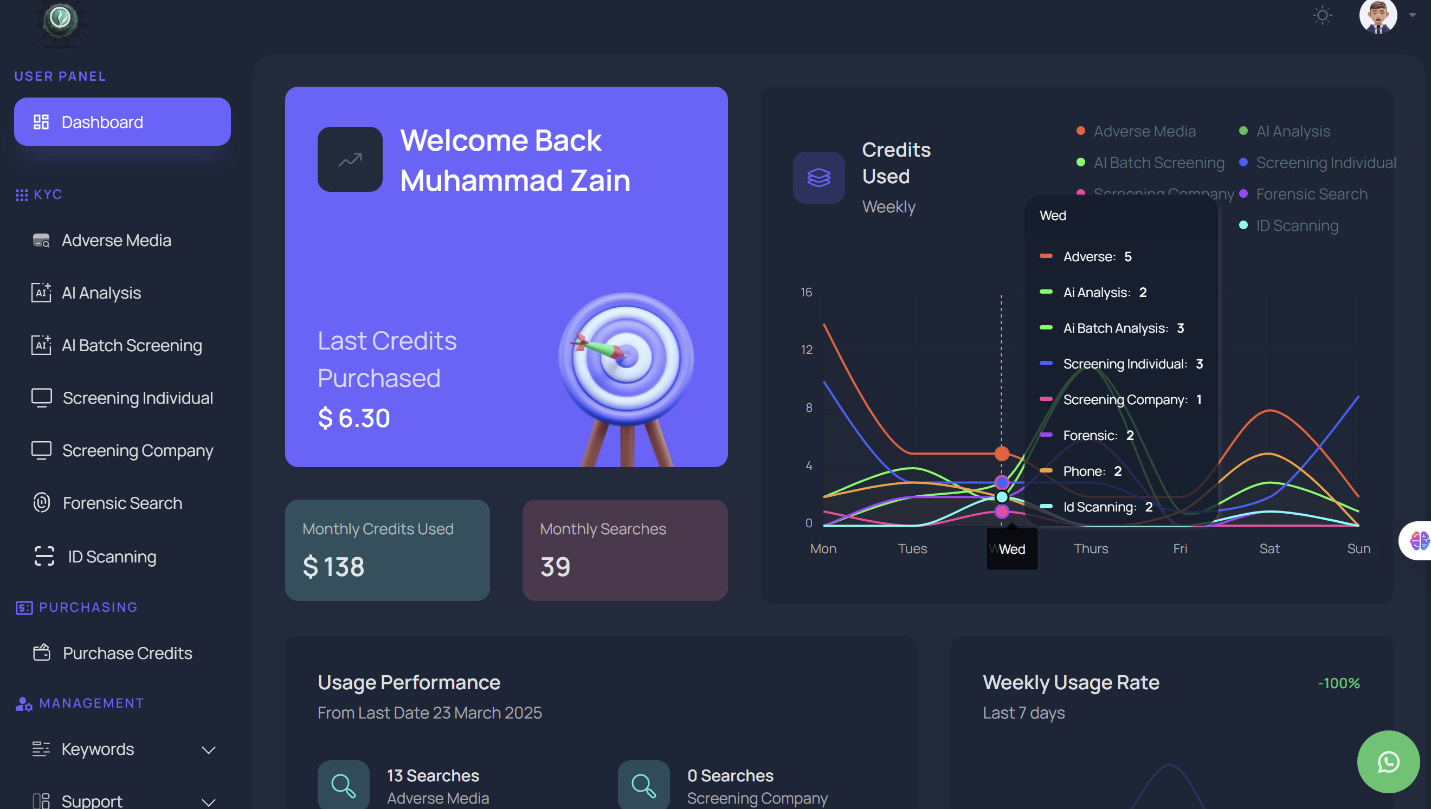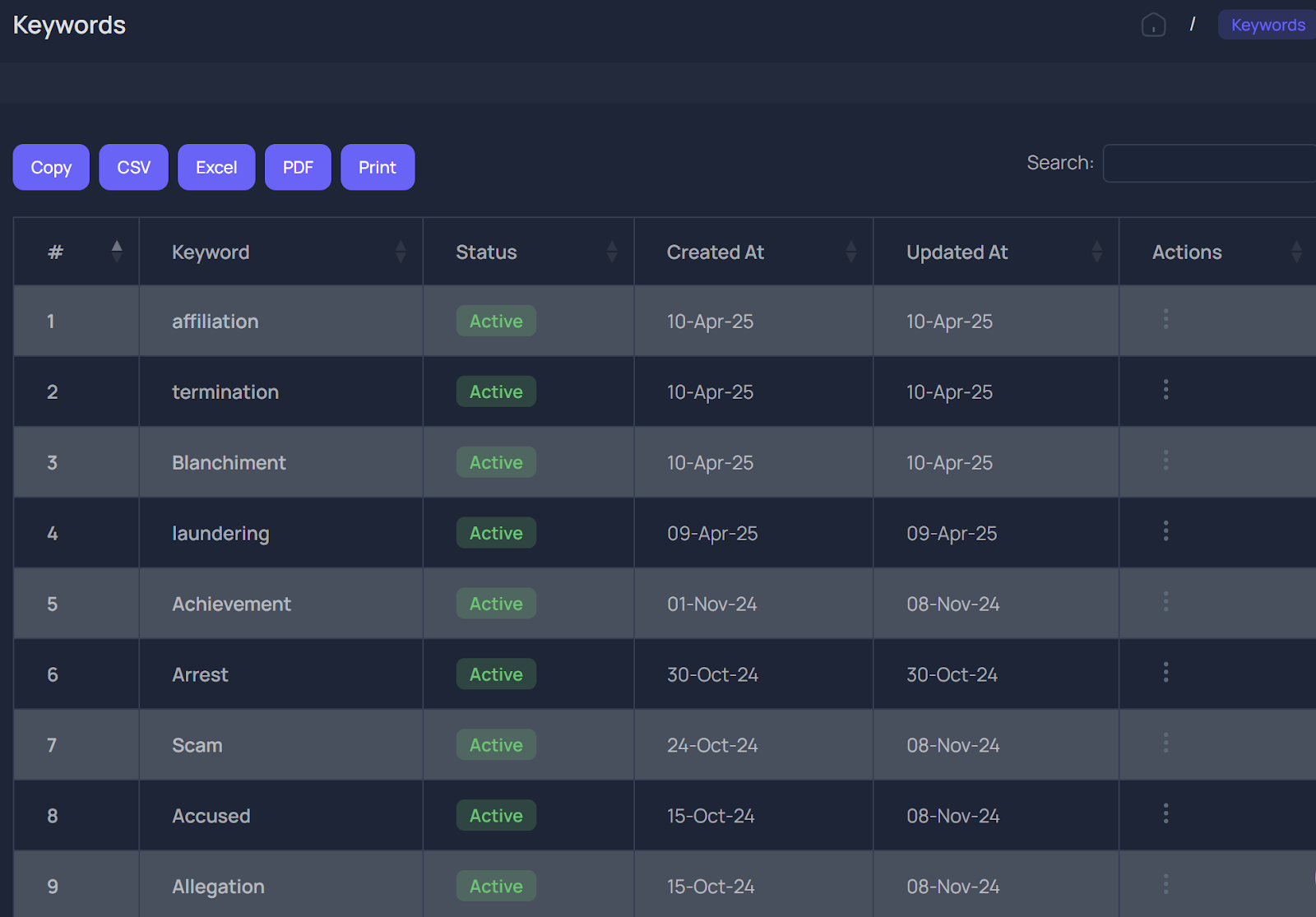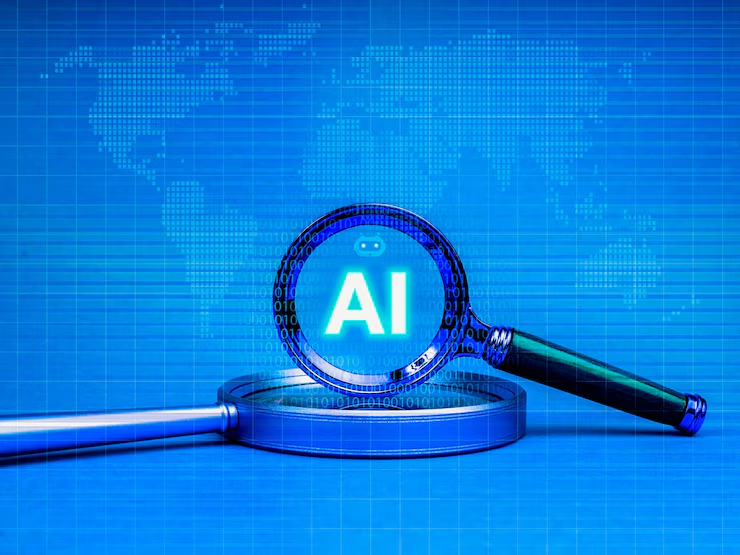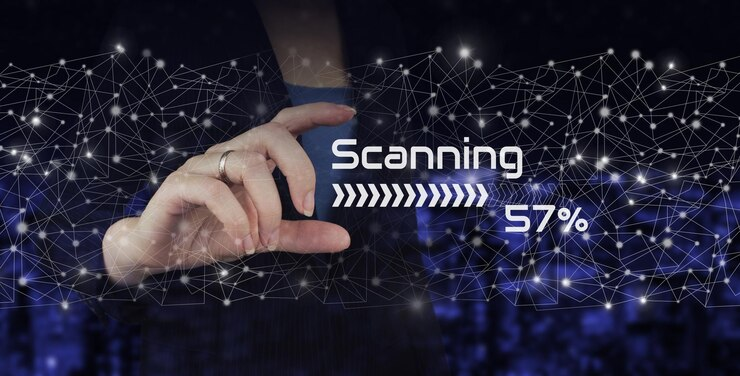WEDISSECT Features
Discover our powerful AI background check tools



Introducing AI background check technology to shoulder the responsibilities of HR officials and compliance officers is a transformative step in the realm of recruitment and regulatory adherence. This innovative tool has been developed to make screening affordable, time efficient and alert on time organisations which taking key decisions to onboard members of staff and clients.
Discover our powerful AI background check tools




Hiring or screening someone is not as easy as looking at their resume these days. Tools driven by artificial intelligence are finding their way into every area in today's fast-paced society where companies expand quickly and all includes background checks. On paper, the concept seems fantastic. AI Background Check Tools can quickly analyze large volumes of data and provide a tidy overview of a person's history. But is it really that easy? Are these artificial intelligence systems enabling us to make better decisions, or are they compromising in ways we don't quite grasp? This paper will explore how these tools operate, their strengths, and their possible weaknesses.

Software that scans, sorts, and analyzes background information on a person using artificial intelligence, machine learning, and data science constitutes an AI background check tool. The AI system gathers and processes data automatically rather than a human analyst combing through court records or work history by hand. It collects data from several sources—public records, criminal databases, news stories, and even social media—and seeks to uncover red flags or critical insights. More businesses are beginning to employ the quick, scalable process in lieu of conventional approaches for this reason.

A few important factors driving companies toward AI-powered screening are as follows. First, it is time-saving. In fast-paced sectors like gig work or technology companies, quickness is important. In the time it takes a person to check one, these tools can handle hundreds of applications. Second, artificial intelligence systems can be configured to continuously monitor records. Rather than only doing a one-time check, they can notify companies if something fresh appears down the road.
Cost is another factor. Tools for AI background checks might lighten the pressure on legal departments or HR personnel. That translates to less time spent on manual chores, fewer hiring delays, and more generally seamless operations. Moreover, others think artificial intelligence is less likely to introduce human prejudice into the process of making decisions. At least in theory, a well-designed system can view everyone using the same criteria and apply it fairly.
Things start to get complicated here. Although these tools are clever, they are not flawless. One significant problem is the potential for false positives. Some artificial intelligence techniques depend on name-matching across several databases, which can readily mix up one person with another. For instance, someone can be reported for a crime they did not commit simply because they have a name with another person listed on a criminal record.
Then, there is the issue of context. While not always good at interpreting it, artificial intelligence excels at gathering data. It might flag someone for a small transgression from years ago without thinking about whether that person has changed or moved on. In sensitive employment positions—like child care or elder care—that can be a dealbreaker, even if it's unfair.
Fairness is another issue with AI background check technology. An algorithm educated on prejudiced data could replicate that bias in ways that are difficult to see. Predictim, for instance, an artificial intelligence platform formerly employed to evaluate babysitters, drew criticism for rating people's trustworthiness using personal data. Critics claimed the program would punish users in ways they considered subjective and biased depending on factors including social media posts or tone of voice. Predictim discreetly left the market following public outcry and Facebook limitations.

AI can be quite useful. It excels in spotting patterns and noticing items a person could overlook. But that does not imply it should be abandoned. Most authorities believe artificial intelligence background check systems should assist human decision-making rather than supplant it. When used correctly, artificial intelligence can be a strong initial filter that highlights problems and assists with data culling. People who can evaluate the data, pose questions, and take background into account should still make the last choices.
A good setup would look something like this: The AI tool does a broad check, flags possible issues, and transmits the results to a qualified analyst or HR team. That way, there is still room for common sense, compassion, and second chances to exist. Companies that employ artificial intelligence in this manner often get the best of both worlds—speed and accuracy without compromising fairness or regulatory compliance.

Not all AI background check tools are created equal. When evaluating options for your organization, there are several key factors to consider. First, transparency is crucial. The best tools explain how they work, what data sources they use, and how they reach their conclusions. If a system operates like a "black box" with no accountability, that's a red flag.
Accuracy and verification processes are equally important. High-quality AI background check tools should have methods to verify findings and minimize false positives. This might include human review checkpoints or confidence scores that indicate when further investigation is needed.
Finally, consider the tool's adaptability. As regulations and best practices evolve, so should your screening technology. Look for vendors who regularly update their algorithms and can customize their tools to meet your specific industry requirements.
As AI technology continues to advance, background check tools will become increasingly sophisticated. We're likely to see improvements in accuracy, context understanding, and fairness. However, the human element will remain essential to ensure ethical implementation and interpretation of results.
Organizations that find the right balance between technological efficiency and human oversight will gain a competitive advantage in recruitment and compliance. WEDISSECT aims to be at the forefront of this evolution, providing cutting-edge AI background check solutions while maintaining the highest standards of fairness, transparency, and regulatory compliance.
The future of background checking isn't about replacing humans with machines—it's about creating powerful partnerships where each does what they do best. By embracing this philosophy, companies can make safer, smarter hiring decisions while respecting individual rights and building diverse teams.